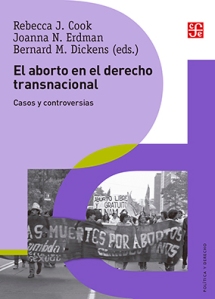SUBSCRIBE TO REPROHEALTHLAW: To receive these updates by email, enter your address in upper right corner of this webpage, then check your email to confirm the subscription.
DEVELOPMENTS
Argentina legalized abortion within 14 weeks’ gestation, Dec. 30, 2020. Newspaper report.
South Korea decriminalized abortion, effective Jan. 1 2021, by order of the Constitutional Court of Korea
Decision of 2019 explained by Prof. Hyunah Yang.
Thailand – abortion became legal on request within 12 weeks, Feb. 7, 2021, based on Constitutional Court judgment of Feb. 19, 2020 (English summary download), and legislative amendments of Jan. 25, 2021 Newspaper report.
NEW CASE SUMMARIES:
[Kenya, abortion law, rape, training healthcare professionals] Federation of Women Lawyers (Fida – Kenya) & 3 others v Attorney General & 2 others [2019] eKLR, Petition No. 266 of 2015, Decision of June 12, 2019. (High Court of Kenya at Nairobi, Constitutional and Human Rights Division) Decision online. Case Summary by Benson Chakaya (download PDF). Overview by Bernard Dickens.
[Zimbabwe, transgender, constitutional rights] Ricky Nathanson v Farai Mteliso, The Officer in Charge Bulawayo Central Police Station, Commissioner of Police and the Minister of Home Affairs, Case no.HB 176/19 HC 1873/14 [2019] ZWBHC 135( (14 November 2019); (Zimbabwe, High Court) Decision online. Overview on Reprohealthlaw Blog. Case Summary by Keikantse Phele (download PDF).
SCHOLARSHIP
Access to Abortion: An Annotated Bibliography of Reports and Scholarship. (Toronto: International Reproductive and Sexual Health Law Program, 2020) 44 pages. Abortion access bibliography.
[abortion – COVID-19] “Legal and Policy Responses to the Delivery of Abortion Care During COVID-19,” by Elizabeth Chloe Romanis & Jordan A Parsons. International Journal of Gynecology and Obstetrics 151.3 (December 2020): 479-486 PDF at Wiley online. Submitted Text at SSRN.
[abortion – Europe] “Access to Abortion in Cases of Fatal Foetal Abnormality: A New Direction for the European Court of Human Rights?” by Bríd Ní Ghráinne and Aisling McMahon, Human Rights Law Review 19.3 (November 2019, Pages 561–584, Abstract and institutional access.
[abortion laws – map] “Global Abortion laws Relating to Self-Managed Abortion,” interactive map created by Ipas with the Center for Public Health Law Research at Temple University, based on WHO Global Abortion Policies database, “displays self-managed abortion laws in 180 countries and 40 sub-national jurisdictions including Australia and Mexico, as of June 1, 2019. Self-Managed Abortion Law Map
“Bioethics training in reproductive health in Mexico,” by Gustavo Ortiz-Millán and Frances Kissling, International Journal of Gynecology and Obstetrics 151.2 (November, 2020): 308-313 PDF at Wiley Online. Submitted Text at SSRN.
Also forthcoming in Spanish: Bioética y derechos reproductivos de las mujeres en México, edited by Lourdes Enríquez Rosas, María del Pilar González Barreda, and Arturo Sotelo Gutiérrez (Fonde de Cultura Económica and the Programa Universitario de Bioética of the Universidad Nacional Autónoma de México (UNAM)
[Brazil] “Confidentiality and treatment refusal: conservative shifts on reproductive rights by Brazilian medical boards,” by Juliana Cesario Alvim Gomes and Corina Helena Figueira Mendes, International Journal of Gynecology and Obstetrics 152.3 (March 2021): 459-464. PDF at Wiley online.
[conscience, Argentina] “Una vuelta de tuerca a la objeción de conciencia: Una propuesta regulatoria a partir de las prácticas
del aborto legal en Argentina,” por Sonia Ariza Navarrete & Agustina Ramón Michel (Ipas, 2019) Descargar informe en PDF. Summario – Espanol y Ingles.
[conscience – Argentina] “Re-thinking the Use of Conscientious Objection by Health Professionals: A regulatory proposal based on legal abortion practices in Argentina, 2019 Executive Summary – English and Spanish.
“Conscience Wars in the Americas,” by Douglas NeJaime and Reva Siegel, Latin American Law Review 5 (2020): 1-26
English and Spanish on web. Download English PDF Spanish PDF.
Conscientious Objection / The Right to Conscience – annotated bibliography, updated Feb. 15, 2021.
Women’s Birthing Bodies and the Law: Unauthorised Intimate Examinations, Power and Vulnerability, new book edited by Camilla Pickles and Jonathan Herring. Hart Publishing, 2020. Publisher’s webpage.
US-focused news, resources, and legal developments are available on Repro Rights Prof Blog. View or subscribe.
JOBS
Links to employers in the field of Reproductive and Sexual Health Law are online here.
______________
Compiled by: the International Reproductive and Sexual Health Law Program, reprohealth*law at utoronto.ca. See Program website for our Publications, Research resources, and Reprohealthlaw Commentaries Series. TO JOIN THE REPROHEALTHLAW BLOG: enter your email address in the upper right corner of our blog, then check your email to confirm the subscription.



 Posted by reprohealthlaw
Posted by reprohealthlaw 



